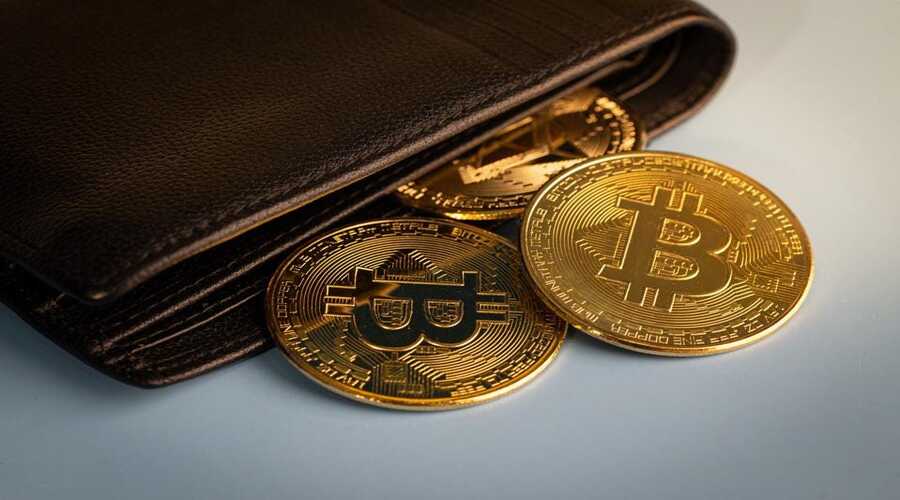Introduction
Cryptocurrencies have become increasingly popular in recent years, with many people investing in these digital assets. However, with this increased interest comes a greater risk of theft and loss. In order to protect your crypto assets, it is important to use a secure wallet. This article will cover the key considerations for securing your crypto assets with a wallet.
What is a Wallet?
A cryptocurrency wallet is a digital wallet that allows users to store, send, and receive cryptocurrencies. There are two main types of wallets: hot wallets and cold wallets.
Hot Wallets vs. Cold Wallets
Hot wallets are wallets that are connected to the internet, while cold wallets are wallets that are stored offline. Cold wallets are generally considered to be more secure than hot wallets, as they are not susceptible to hacking or other online threats.
Types of Wallets
There are several types of wallets available, each with their own advantages and disadvantages. Some common types of wallets include:
Hardware Wallets
Hardware wallets are physical devices that store your private keys offline. They are considered to be very secure, but can be expensive.
Software Wallets
Software wallets are digital wallets that are stored on a computer or mobile device. They are convenient and easy to use, but can be susceptible to hacking and other online threats.
Paper Wallets
Paper wallets are physical wallets that are printed on paper. They are considered to be very secure, but can be difficult to use and require a high level of technical knowledge.
Private Keys
Private keys are a crucial component of cryptocurrency wallets. They are used to access and manage your crypto assets. It is important to keep your private keys secure and not share them with anyone.
Backup and Recovery
It is important to backup your wallet and have a recovery plan in place in case your wallet is lost or damaged. Some wallets offer seed phrases or recovery phrases that can be used to recover your crypto assets in the event of a lost or damaged wallet.
Choosing a Wallet
When choosing a wallet, it is important to consider factors such as security, ease of use, and compatibility with the cryptocurrencies you want to store.
Security Measures
There are several security measures that can be used to enhance the security of your wallet. Some key points to consider include:
Two-Factor Authentication
Two-factor authentication (2FA) can help to protect your wallet from unauthorized access. Many wallets offer 2FA options, such as SMS verification or authenticator apps.
Multi-Signature
Multi-signature wallets require multiple signatures to complete a transaction, adding an extra layer of security to your wallet.
Transaction Fees
Transaction fees are an important consideration when using a wallet. Some wallets charge high fees for transactions, while others offer lower fees.
Mobile Wallets
Mobile wallets are a popular option for people who want to manage their crypto assets on the go. Some key points to consider when using a mobile wallet include:
Security
Mobile wallets can be vulnerable to hacking and other security threats, so it is important to choose a reputable and secure mobile wallet.
Convenience
Mobile wallets are convenient and easy to use, but can be more susceptible to human error than other types of wallets.
Cold Storage
Cold storage is a method of storing crypto assets offline, which can be a very secure way of protecting your investments. Some key points to consider include:
Hardware Wallets
Hardware wallets are a popular form of cold storage, as they store your private keys offline on a physical device.
Paper Wallets
Paper wallets are another form of cold storage, where you print out your private keys and store them offline.
Regulatory Compliance
Regulatory compliance is an important consideration when using a wallet. Some wallets may not comply with regulations in certain countries or regions, which can impact your ability to use the wallet.
Third-Party Wallets
Third-party wallets are wallets that are not provided by the cryptocurrency itself. While third-party wallets can be convenient, they can also be less secure than official wallets provided by the cryptocurrency.
Trust
When using a third-party wallet, it is important to choose a reputable provider with a track record of security and reliability.
Compatibility
It is also important to ensure that the third-party wallet is compatible with the cryptocurrency you want to store.
User Experience
User experience is an important consideration when using a wallet. Some key points to consider include:
Ease of Use
Wallets should be easy to use and navigate, with clear instructions for managing your crypto assets.
Mobile Accessibility
Many users prefer wallets that are accessible on mobile devices, such as smartphones and tablets.
Integration with Exchanges
Integration with cryptocurrency exchanges can be a useful feature for wallets. Some wallets allow users to buy and sell cryptocurrencies directly within the wallet.
Community Support
Community support can be a valuable resource for users of cryptocurrency wallets. Some wallets have active communities on forums and social media platforms, which can provide support and answer questions.
Reputation and Trust
The reputation and trustworthiness of a wallet provider is an important consideration when choosing a wallet. Some key points to consider include:
Security and Reliability
Wallets should have a strong track record of security and reliability, with regular updates and security audits.
Transparency
Wallet providers should be transparent about their security measures and practices, as well as their fees and policies.
Fees
Fees are an important consideration when using a wallet. Some wallets charge high fees for transactions or for certain features, while others offer low or no fees.
Conclusion
Securing your crypto assets with a wallet is an essential step in protecting your investments. By considering the key factors outlined in this article, such as the type of wallet, private keys, backup and recovery, and choosing a wallet, you can ensure that your crypto assets are safe and secure.


